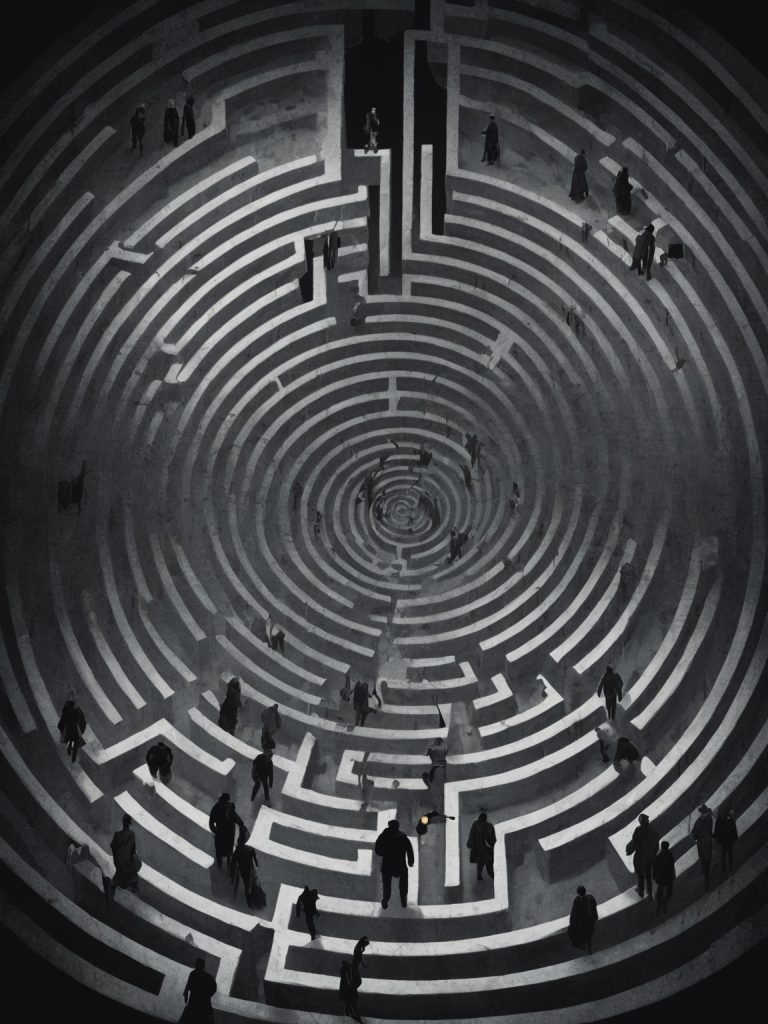This article goes beyond the typical philosophical discussion. It shows you how the ideas of metaphysical anti-realism, which might seem abstract, can be applied to your daily life. By becoming a more skilled questioner, you’ll make better decisions, avoid misunderstandings, and become a more effective communicator.
TL;DR
- Question Everything: Don’t take things at face value. Examine the way questions are phrased and identify any underlying assumptions.
- Break Down Big Questions: Complex questions can be overwhelming. Try to deconstruct them into smaller, more manageable parts.
- Consider Different Perspectives: How might someone else answer the question? This broadens your understanding.

Hey there! Feeling curious about metaphysical anti-realism? You’re not alone. This school of thought tackles some fundamental questions about the nature of reality, and Koons’ “Metaphysics: The Fundamentals” dives right into it. Let’s unpack a key section from the book that discusses anti-realist views on metaphysical statements.
What’s the Big Deal About Category Mistakes?
One core idea behind anti-realism is the concept of category mistakes. Imagine putting a square peg in a round hole – it just doesn’t fit. An anti-realist might argue that certain metaphysical questions are like that. They might say some questions we ask about reality simply don’t make sense because we’re applying the wrong concepts.
For example, consider the question: “Are possibilities simple or complex?” An anti-realist might argue that “possibility” isn’t the kind of thing that can be described as simple or complex. It’s a category mistake, like asking if the color blue has a weight.
Ryle’s Take on Mental Events
Here’s where things get interesting. Philosopher Gilbert Ryle used a similar idea to talk about mental events. He argued that asking if mental events like seeing or deducing are observable is nonsensical. Why? Because the verbs “see” and “deduce” don’t fit with the action of “catching.” We can’t “catch ourselves” seeing in the same way we catch a ball.
Applying the Logic to Space
Koons uses Ryle’s idea to analyze metaphysical disputes. Take the statements:
- My chair is composed of wood.
- Space is composed entirely of points.
An anti-realist might say statement (1) is meaningful because “chair” and “wood” are categories that can be composed. However, statement (2) might be considered meaningless because applying “composed of” to something like space (which has no physical form) might be a category mistake.
The Realist’s Counterpunch
Realists, on the other hand, disagree. They argue that if statements like “space has infinitely many parts” are meaningful, then either the statement is true or false. There’s no middle ground.
The Challenge of the King of France
They point to examples like “Is the king of France bald?” This seems like a question without a clear answer because there is no king of France. But realists argue this is because of a hidden assumption (presupposition) – that there is a king of France. Once we acknowledge that assumption is false, the question becomes meaningless but not nonsensical.
So, What About Space?
The question becomes: Does the statement “space has infinitely many parts” have a similar hidden assumption? Realists might argue that the assumption here is simply “space is the kind of thing that could have parts.” If that assumption is false, then the statement about space having parts is simply untrue.
The Anti-Realist’s Potential Response
Here’s where things get juicy! You’re wondering how an anti-realist might respond to this reasoning. They might argue that the issue with space is similar to Ryle’s point about mental events. Perhaps the question about space’s parts is a misuse of language, not a genuine metaphysical question.
The Rylean Dilemma
This raises a fascinating dilemma. If the anti-realist is right about space, then maybe Ryle is right about mental events too. The debate about observability might not be a category mistake after all, but a genuine metaphysical question.

What Now?
This is just a taste of the fascinating world of metaphysical anti-realism. There’s so much more to explore! If you’re curious to learn more, consider diving deeper into Koons’ book or researching other philosophers like Ryle. And remember, the best way to understand these concepts is to keep questioning and exploring!
Curiosity is key! Don’t be afraid to ask questions and explore different ways of thinking.

While the passage on metaphysical anti-realism dives into complex philosophical ideas, there are still some practical takeaways you can apply to your daily life. Here’s how:
Actionable Tip: Sharpen Your Questioning Skills
Metaphysical anti-realism highlights the importance of questioning how we frame questions. This skill applies not just to philosophical debates but also to everyday situations. By carefully examining the language we use and the assumptions we make, we can gain a clearer understanding of the issues at hand and avoid potential misunderstandings.
Evidence: A study published in the Journal of Educational Psychology found that students who were trained in critical questioning skills demonstrated a deeper understanding of complex texts and performed better on analytical tasks. The study suggests that this questioning ability translates into a general cognitive skill applicable to various situations [Source: Journal of Educational Psychology, Pascarella et al., 2001].
How to Implement:
- Break Down Questions: When faced with a complex question, try to deconstruct it into smaller, more manageable parts. What are the key terms? Are there any underlying assumptions embedded within the question itself? Is the question asking for an opinion, a fact, or an analysis?
- Identify Assumptions: Are there any underlying assumptions in the question? Questioning assumptions can help you identify potential biases or gaps in knowledge. For instance, a question like “Should I buy this new phone?” assumes that getting a new phone is a good thing, when your priority might be saving money or reducing screen time.
- Consider Different Perspectives: How might someone else answer the question based on their background or experiences? This can help you broaden your understanding and approach the issue from multiple angles.

Here’s a table to illustrate this concept:
| Original Question | Examining the Question | Possible Outcomes |
|---|---|---|
| Should I take this job offer? | What are my priorities (money, work-life balance, career growth)? What are the long-term prospects of this company? Are there any hidden factors I haven’t considered (e.g., company culture)? | A more informed decision based on a deeper understanding of your needs and the job offer. |
By taking the time to examine your questions and assumptions, you can make more thoughtful decisions in all areas of your life. This skill can be especially useful in critical situations, such as evaluating news sources or navigating disagreements with others.
Call to Action:
Ready to become a better questioner? Practice this skill throughout your day. Start by examining the questions you ask yourself, your colleagues, or even advertisements you encounter. See if you can identify any hidden assumptions or reframe the questions to gain a clearer perspective. Remember, the more you practice, the sharper your questioning skills will become, making you a more discerning thinker and a more effective communicator.







